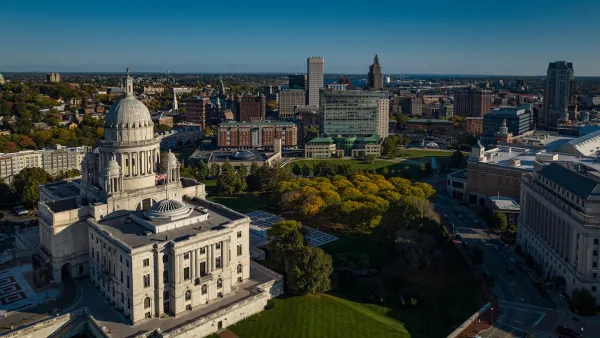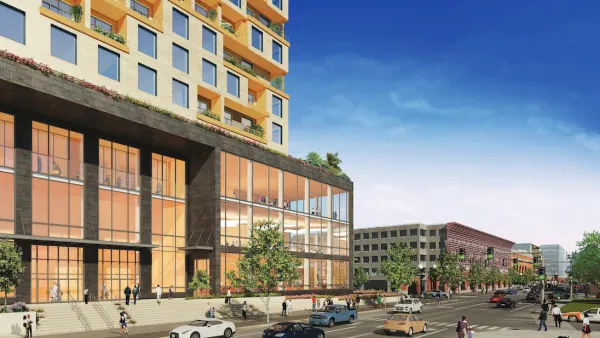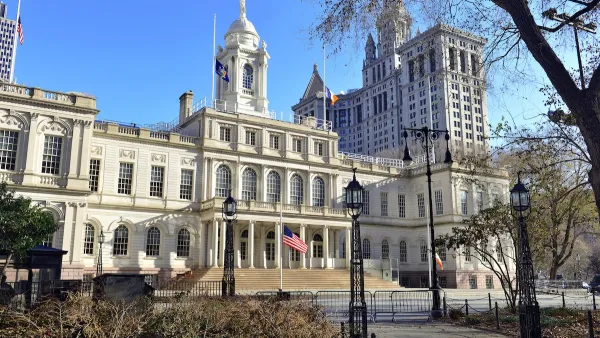Does the New York City Housing Authority’s (NYCHA) decision to tear down Prospect Plaza, a high rise development in Brownsville Brooklyn, portend the demise of public housing in New York City as we know it?
Does the New York City Housing Authority's (NYCHA) decision
to tear down Prospect Plaza, a high rise development in Brownsville Brooklyn,
portend the demise of public housing in New York City as we know it? Probably
not. The Prospect
Plaza case appears to be an isolated
case in New York City
at least. But it is a truism that the New
York City Housing Authority remains a anomaly.
Public housing in many cities has been demolished and in other places is
considered a failure. The fact that
NYCHA is generally viewed as a success is illustrative of the fact that public
housing can be successful. At the
national level, however, public housing has been a political failure in the
sense that new public housing is not being built, units are being torn down in
many cities, and the program is chronically underfunded.
The culprit is not the public housing program. There is nothing inherent in the public
housing program that deems it a failure. Look no further than the American
political culture. It is a culture not
hospitable to redistribution programs that target the poor or minorities.
But there is a way for public housing to continue serving
its "public" function and be viewed in a more esteemed light. Public Housing was initially able to achieve
political support in the 1930s because it was billed as a jobs program during a
time when joblessness was one of America's most pressing problems. Why not use public housing to address some of
the bigger challenges facing America
today? Global warming and the fallout from the housing bust are two of the most
pressing problems. We need to experiment
with new types of green housing if we hope to curtail our energy
consumption. Prototypes of housing that
experiment with new technologies could be part of the Public Housing
program.
The foreclosure crisis is another area where bold and
experimental thinking is in order.
Currently, the foreclosure crisis is proving intractable with millions
of homes underwater and banks still reluctant to redo mortgages. Might not there be an opportunity for the
federal government to step in, particularly in neighborhoods where demand is
weak, and acquire foreclosed properties and convert them into affordable
housing?
More important than any specific proposal that I may have,
is the need to rethink the role of public housing in our society. Rather than being a program of last resort,
public housing should be a model for how we might house ourselves including the
most vulnerable among us.

Analysis: Cybertruck Fatality Rate Far Exceeds That of Ford Pinto
The Tesla Cybertruck was recalled seven times last year.

National Parks Layoffs Will Cause Communities to Lose Billions
Thousands of essential park workers were laid off this week, just before the busy spring break season.

Retro-silient?: America’s First “Eco-burb,” The Woodlands Turns 50
A master-planned community north of Houston offers lessons on green infrastructure and resilient design, but falls short of its founder’s lofty affordability and walkability goals.

Test News Post 1
This is a summary

Analysis: Cybertruck Fatality Rate Far Exceeds That of Ford Pinto
The Tesla Cybertruck was recalled seven times last year.

Test News Headline 46
Test for the image on the front page.
Urban Design for Planners 1: Software Tools
This six-course series explores essential urban design concepts using open source software and equips planners with the tools they need to participate fully in the urban design process.
Planning for Universal Design
Learn the tools for implementing Universal Design in planning regulations.
EMC Planning Group, Inc.
Planetizen
Planetizen
Mpact (formerly Rail~Volution)
Great Falls Development Authority, Inc.
HUDs Office of Policy Development and Research
NYU Wagner Graduate School of Public Service





























